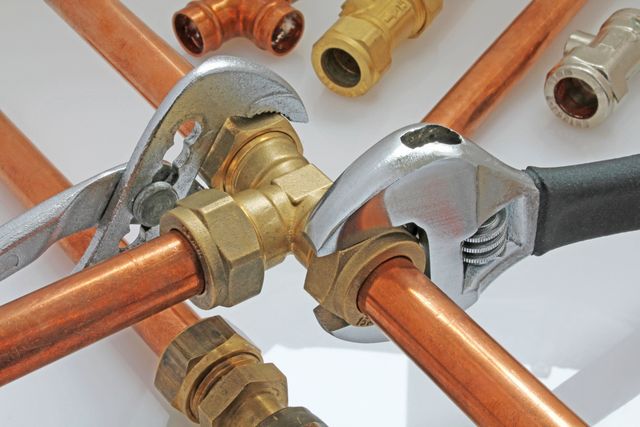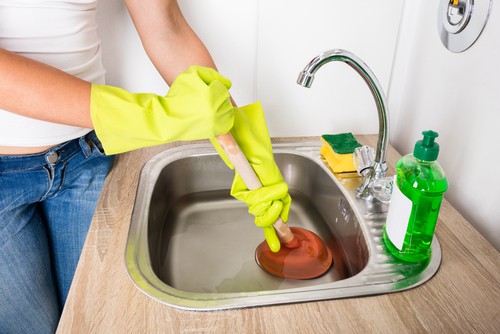Urgent Plumbing Advice: Steps to Take Until Support Arrives
Urgent Plumbing Advice: Steps to Take Until Support Arrives
Blog Article
This great article underneath involving What to Do During a Plumbing Emergency is truly interesting. You should give it a look.

Plumbing emergency situations can strike any time, triggering tension and potential damage to your home. Whether it's a burst pipeline, a clogged up drainpipe, or a leaky tap, recognizing just how to handle the circumstance until a professional plumber gets here can save you from further complications. This write-up supplies vital emergency plumbing pointers to assist you reduce damage and reclaim control throughout a plumbing crisis.
Switch off the Water System
The initial step in any type of plumbing emergency situation is to shut down the supply of water. For localized concerns, such as a leaking faucet or commode, shut off the valve near the component. In the case of a major leakage or burst pipe, find your home's main water shut-off shutoff and transform it off instantly. Knowing the area of these shutoffs in advance can save useful time during an emergency situation.
Address Little Leaks with Short-lived Fixes
Tiny leaks can promptly end up being significant troubles if left unattended. Make use of these short-term fixes up until professional assistance arrives:
While these solutions aren't permanent, they can assist minimize water loss and damages.
Unclog Drains Pipes Safely
A clogged up drain can be a discouraging and unpleasant issue. Right here's how to tackle it:
If these approaches don't work, prevent making use of excessive force, as it may aggravate the clog.
Manage Overflowing Toilets
An overflowing bathroom can create prompt chaos. Here's what you must do:
Turn off Your Water Heater
In certain emergencies, such as a ruptured pipeline, it's smart to turn off your water heater. This avoids overheating or damages to the device when water quits streaming. Turn off the power supply to the water heater (electrical or gas) and allow it cool off to stay clear of possible threats.
Momentarily Quit a Ruptured Pipeline
A burst pipe can result in significant water damage in mins. To minimize the concern:
Call an expert plumbing instantly to address the trouble completely.
Deal With Frozen Pipeline Meticulously
In cooler climates, frozen pipelines are a typical emergency. If you suspect an icy pipeline:
Stop Additional Damage
Taking fast activity to minimize damages can save you time and money in the long run. Right here's how:
. Have an Emergency Pipes Set
Prepare a standard plumbing emergency package to deal with small issues effectively. Your set needs to include:
Having these tools handy can make a significant difference in your capability to manage emergencies.
Know When to Call a Specialist.
While quick fixes can help briefly, specific pipes issues need prompt professional interest. Call a plumber if:.
Without delay speaking to a specialist ensures the problem is dealt with properly and protects against further problems.
Final thought.
Pipes emergency situations can be frustrating, but with the best understanding and devices, you can take care of the scenario effectively until help arrives. By turning off the supply of water, attending to little leakages, and making use of short-lived fixes, you can minimize damage and keep your home safe. Keep in mind, these suggestions are momentary options; constantly get in touch with a qualified plumbing professional to take care of the source of the issue. Prep work and quick thinking are your finest allies in any type of plumbing emergency.
8 Helpful Tips for Managing Plumbing Emergencies at Home
If your plumbing system hasn’t failed once, wait for it because almost everyone has a story to tell. Sometimes, it could be simple emergencies such as a leaking pipe, a blocked cistern, or even a big burst pipe. In situations like this, you need to have some handy tips to save you some money and from possible damages.
Take care of minor issues early.
Sometimes, you could have avoided an emergency by taking proactive measures while it was still early. Some major plumbing emergencies can be a result of an ignored minor issue. We recommend that you have items like plumbing tapes and other related items. A plumbing tape can allow you to manage minor leaks before the plumber arrives.
Cut off the water supply.
This tip is essential in almost any type of leakage problem. For problems like minor leakages in the toilet or kitchen, turn off the supply that takes water to the affected pipes. If the leakage is a major pipe, you must shut off the supply valve to the entire building. This will help you avoid flooding your home and neighbors if you share a flat.
Know your plumbing system
Folks typically move into a new apartment without understanding the water supply around the building. This can prove disastrous if a water emergency arises and the plumber is far away. The previous tip will prove useless if you don’t practice this one. More importantly, know where your water shut-off valve is located – you’ll need that knowledge to prevent potential home floods.
Have some common handy tools
There are lots of plumbing emergencies that you can handle without hiring a plumber. That’s why you must keep some tools available always. Some tools that you can use to fix simple plumbing emergencies easily include plumbing tapes, screwdrivers, thread seal tapes, plungers, pliers, tape measures, and rubber gloves.
Insulate your pipes from cold
You’ll save yourself from many plumbing expenses if you protect your water pipes from the cold. This is because of the harmful effects that cold weather can have on your pipes. During winter, your pipes can burst from being overly expected to freezing temperatures. So, make sure insulators are there to keep the pipes working correctly.
Avoid practices that will clog your toilet.
Many people indulge in practices that can damage the plumbing system of the entire building. One of these is when they use their toilet to dispose-off garbage. They flush all kinds of things, such as paper towels, bandages, hairs, female sanitary products, etc., down the toilet. This will block your toilet in the long run, incurring unnecessary expenditures. Dump such waste in the trash instead.
Check your dials regularly.
Sometimes, there could be leakages in your home without noticing them in time. So, constantly monitor your water meter dial. If the dial is reading when there is nobody using water, this is an indicator that there is leaking. Check for leaks immediately. Call a plumber as soon as possible if you can’t find any.
https://www.constructionplacements.com/8-helpful-tips-for-managing-plumbing-emergencies-at-home/

I came across that post on Expert Tips for Emergency Plumbing Repairs when doing a lookup on the web. So long as you enjoyed our page if you please make sure you remember to pass it around. Many thanks for your time. Don't hesitate to visit our blog back soon.
Click Here Report this page